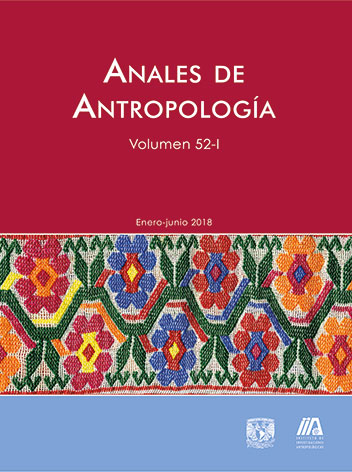Miscegenation and identity in Buenos Aires, Argentina. Experiences from the individual search of genetic data
Main Article Content
Abstract
Since the late nineteenth century, people in Argentina consider to be a homogeneous society of white-European culture and phenotypic traits, with Buenos Aires as an epicenter. This perception contrasts with the rest of Latin America, where ideologies mostly focus on being mestizo. In the last decades these discussions began to be approached through genetic ancestry studies.
In this article we work with interviews and genetic analysis results of 40 participants of the project “Genetic Ancestry and Identity”, to contextualize the social processes that underlie this concept and to relate the individual genetic data to the history of society.
The participants related stories of indigenous and Afro-descendant populations, often hidden or incomplete. In these stories it is possible to perceive both the imposition and the lack of foundation of the narrative of white Argentina. This opens the way to consider a Mestizo Argentina, diverse and heterogeneous.
Downloads
Article Details
Citas en Dimensions Service
Esta revista usa una licencia CC del tipo CC BY-NC-ND 3.0. Se maneja bajo el esquema de acceso abierto, con una licencia Creative Commons Attribution-NonCommercial-NoDerivs 3.0 Unported.
